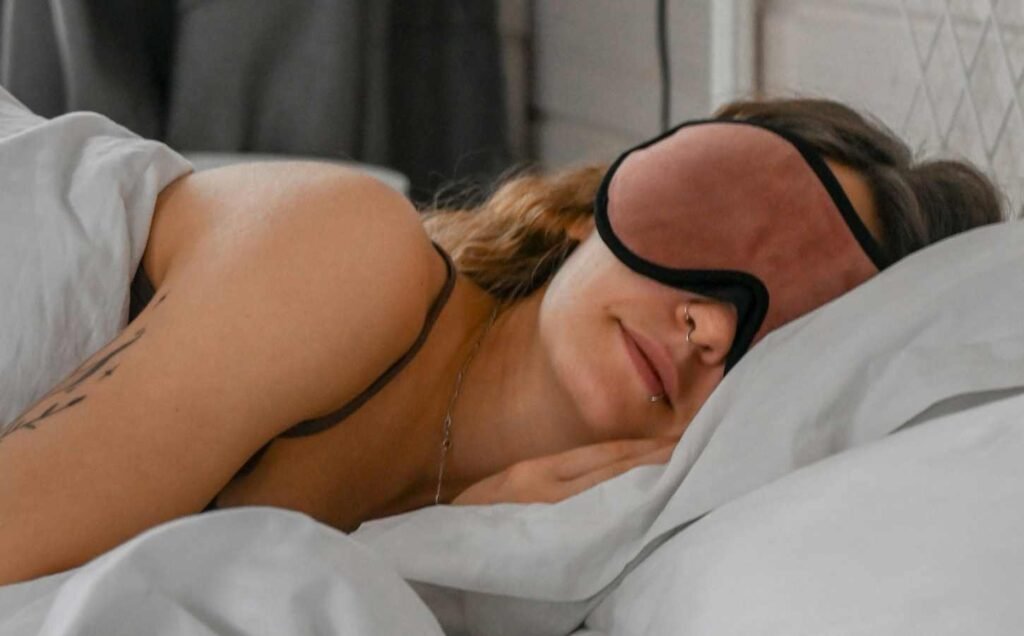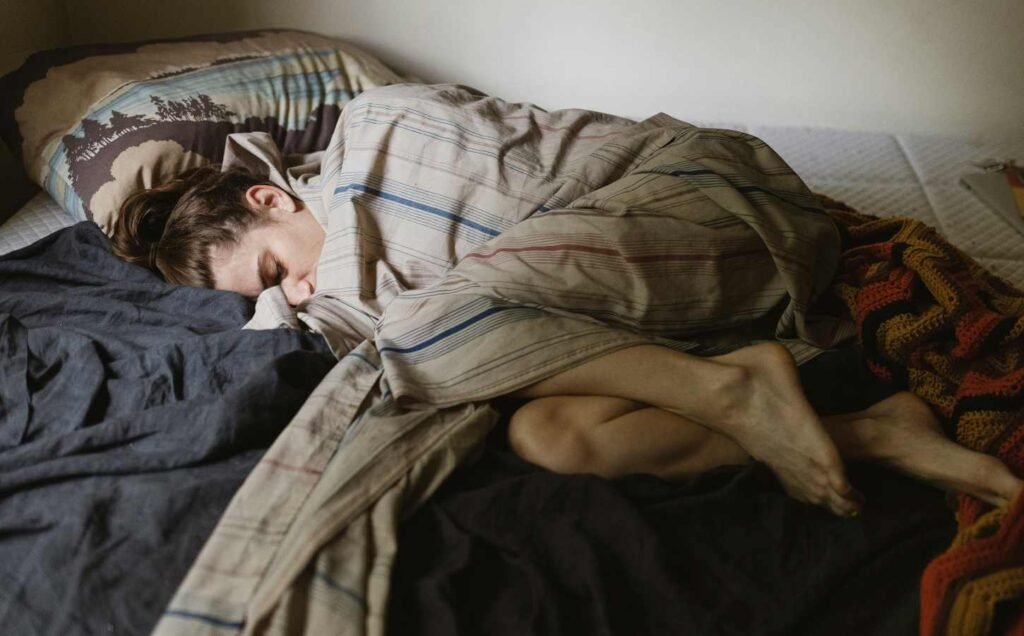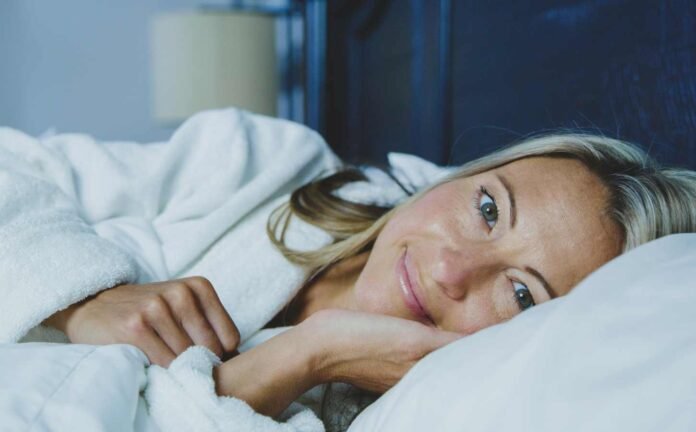Today we’re talking about a topic that affects so many of us – especially those navigating the tricky yet wonderful midlife years (I have only experienced this second hand, when my partner went through this stage of life).
If you’re struggling with sleep and anxiety you’re not alone. Let’s get into what recent research has found about the link between sleep health and anxiety symptoms in midlife women.
The Midlife Sleep Struggle
Midlife is a time of big change. Whether it’s hormones, career changes or family dynamics, there’s a lot on our plates. No wonder sleep can be elusive. Add anxiety to the mix and you’ve got a recipe for insomnia.
What the Research Says
A recent study in the International Journal of Women’s Health looked into this very topic. They studied midlife women and looked at the link between sleep health and anxiety symptoms. The results are interesting and a bit scary but don’t worry – there’s hope!
Key Findings
One of the main findings from the study was that sleep disturbances are common in midlife women. This means everything from difficulty falling asleep to waking up in the middle of the night. They found that these sleep issues are closely linked to anxiety symptoms. Essentially, poor sleep can trigger anxiety and high anxiety can further disrupt sleep – a vicious cycle, right?
Also, the study found that addressing sleep issues can reduce anxiety symptoms. So, we can alleviate some of that midlife anxiety by improving our sleep health. Win-win!
Practical Tips for Better Sleep
So, how can we break this cycle and get better sleep? Here are some practical tips based on the research:
- Establish a Relaxing Bedtime Routine: Create a calming pre-sleep ritual to tell your body it’s time to wind down. This could be reading a book, taking a warm bath or practicing some gentle yoga.
- Limit Screen Time: The blue light from phones, tablets and computers can disrupt your sleep. Try to avoid screens at least an hour before bed.
- Mind Your Diet: What you eat and drink can affect your sleep. Avoid caffeine and heavy meals close to bedtime. If you’re hungry, have a light snack.
- Create a Sleep-Friendly Environment: Make sure your bedroom is cool, dark and quiet. Consider blackout curtains, earplugs or a white noise machine if needed.
- Practice Stress-Reduction Techniques: Incorporate relaxation techniques like deep breathing, meditation or progressive muscle relaxation into your daily routine to manage anxiety.
Related articles:
10 Bedtime Habits for Better Sleep: Creating Your Perfect Nighttime Routine
How Blue Light Affects Sleep: Tips for a Restful Night in Our Tech-Driven World
How Your Diet Impacts Sleep Quality: Understanding the Connection
Creating the Ideal Sleep Environment: A Guide to Optimizing Your Bedroom
Improve Sleep Duration and Quality with Progressive Muscle Relaxation for Sleep
See a Professional
If these don’t work, it’s time to get professional help. Cognitive-behavioral therapy for insomnia (CBT-I) has been shown to help with sleep and anxiety. And talking to your healthcare provider about your symptoms will help you get a treatment plan tailored to you.
Conclusion: Sleep Health and Anxiety in Midlife Women
Sleep and anxiety in midlife can be tough but understanding the link between the two is the first step. By taking action to improve your sleep you can also manage anxiety symptoms and overall well-being.
You’re not alone. Many women go through the same thing and there’s plenty of resources and help out there. Stay informed, take care and sleep tight!
Source:
Kravitz HM, Ruppert K, Lian P, Neal-Perry G, Swanson LM. Sleep Health and Anxiety Symptoms in Midlife Women: The Study of Women’s Health Across the Nation (SWAN). Int J Womens Health. 2024;16:1079-1091
https://doi.org/10.2147/IJWH.S455834
Discover the Natural Solution for Your Sleeping Problems

You probably didn’t start reading this page by chance. You are here because you are looking for a natural solution for your sleeping problems.
This article looks at natural remedies and lifestyle modifications that can help you achieve a restful night’s sleep naturally.
Continue reading: Discover the Natural Solution for Your Sleeping Problems
How the COVID-19 Pandemic Is Disrupting Our Sleep: Understanding Coronasomnia

One of the most pervasive yet often overlooked consequences of the pandemic is its impact on sleep. Dubbed “Coronasomnia,” the phenomenon of increased sleep disturbances due to pandemic-related stress has become a significant concern for health professionals and individuals alike.
Continue reading: How the COVID-19 Pandemic Is Disrupting Our Sleep
The Long-Term Impact of Global Warming on Sleep: What You Need to Know

We often hear about the devastating effects of global warming on the environment, but did you know it could also impact your sleep?
The potential impact of global warming on sleep is a significant concern, highlighting yet another reason to address climate change urgently. By taking steps to mitigate its effects on our sleep environment, we can better protect our health and well-being in the face of rising global temperatures.
Continue reading: The Long-Term Impact of Global Warming on Sleep




